Rivers and boating can affect your mental emotions in all sorts of ways. There are great mental health benefits to be gained from taking part in river activities. But they aren’t always good, boating can be stressful and also negatively impact your mental health. Here are some different scenarios of how the river could help or hinder your mindset. (I’m not a doctor, and this is not to be taken as a medical treatment.)
Building Confidence.
I’ve first hand seen people who had very little confidence in themselves improve 1000% within just a season or two of becoming a river guide. Not just the ability to run rivers, but to communicate better with other humans, become leaders, and get to know themselves on a deeper level. When you become a guide it's not all boating. It's herding people, shouting safety talks in a loud bus, teaching your crew, planning with your fellow guides and making sure everyone is set up for success. This stuff is insanely beneficial for your mental health, even if it doesn’t always feel like it.
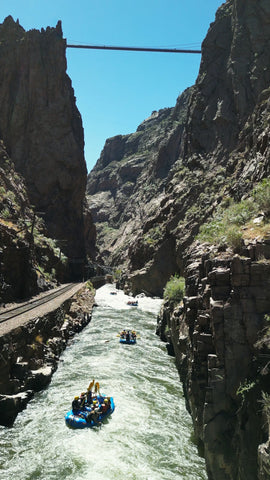
Teaching your crew to paddle -
How good you are at being a guide will depend on how well you can get others to work together. Sure you might be able to dead stick a class 3 or 4 section, but that's not fun for anyone. People come out for more than just waves in their face. They are looking to participate in activities with other humans. This is what makes rafting great for our mental health. It makes us forget about problems in the world for a little bit and be part of something bigger than ourselves. So as a guide, giving the best possible experience to others, and getting the most out of your group, will benefit more than just your wallet. Helping others can lead to a much deeper kind of satisfaction in your life. Who doesn’t want that?!
Safety Talks -
When I started guiding I would have much rather flipped a raft in big water class 5 than have to do public speaking. New guides stutter and mumble unconfidently through these talks at first, but after a season of practice, it’s no big deal at all. You will have the whole bus laughing while you confidently give them valuable, potentially life saving information. The confidence in speaking like this will benefit you greatly outside of your raft guiding career as well. You are now a communicator! If you haven’t heard, communication skills are very important in having a well balanced life. So get out there and start communicating!
Recovering a Mess -
Mistakes are going to happen out there. That is part of the game. Flipped boats, swimmers, and missed lines will make you better in the future. If you touch a hot stove, you now know what not to do. Same with boating, every incident that goes a little wrong will improve your skills a bit.
(Hopefully!) By the end of season one, when you have navigated down 1000+ miles of river with sub-par paddlers who can hardly stay in the boat, and recovered from some messy situations, you’ll have learned more than you think! Not only are you working with a group on your boat, but working with a group of different boats. These are your best friends out there. They will help you when you are in trouble, and you will be there to help them when they are in trouble. By building these connections and having each other's back, you will become considerably more confident as a person not only in rafting but outside of rafting as well. You are now dependable, and a leader. Being dependable is not only good for other people but also for yourself. It always feels good knowing that someone has your back, even if it’s yourself!
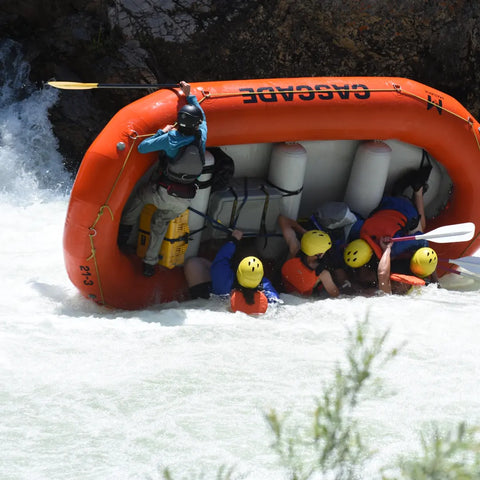
Superpowers.
Yoga SUP on a misty lake? Canoeing on a lily covered pond? Yes these are all awesome ways to connect with water. Water sports don’t have to be constantly extreme for you to learn more about yourself. There is plenty to be gained from learning to breathe, sitting still and listening more. In fact, you will function at a higher level for the big stuff, if you are taking time for yourself to heal and recover. In today’s society it can be easy to get into the go, go, go mindset that is ultimately ruining the world. It’s perfectly fine to not push the limits constantly. So let's look at a few examples of how to chill and heal your body.
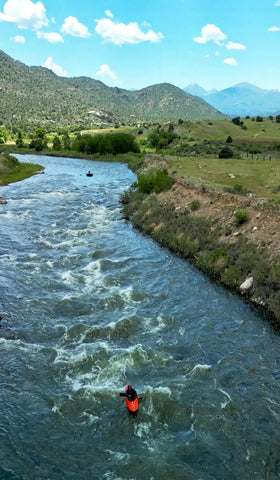
Sitting Still -
For many people sitting still might be one of the biggest challenges of your life! I know it is for me. Again, a few years ago I would’ve rather flipped a boat in big water than sat still for 1 minute. Sitting still is greatly beneficial, physically and mentally. Your body and mind does in fact need to rest. And more than occasionally. Sitting still’s greatest lesson is patience, calm energy, and clarity.To be patient in this world will give you superpowers that most people will never have. This will also give your mind a chance to catch up, process and reflect on all of the information that is constantly being crammed into it. Master this and you’ll find your anxiety melt away.
Breathing -
When was the last time you paid attention to your breath? Do you find yourself holding your breath a lot? I urge anyone to take a canoe out onto a mountain lake, alone, and just breathe! Breathe nice, easy, deep breaths for like an hour and you will be in a considerably better mood. It’s not a secret, your body needs oxygen to survive and function well. Your muscles function will improve, your thought processing ability will improve and you will feel more energized. The biggest thing that breath gives us is life. Pretty important to be well!
Listening -
Being a guide requires a lot of talking. Safety talks, check in talks, paddle talks, paddle commands, and just being a tour guide. How often do we stop and listen? I try to always find one quiet moment on a trip where I can just pay attention to the sounds around me. The river makes this incredibly healing sound that sounds like music if you really stop and listen. The wind, trees, birds, insects, sky, and rain are some examples of natural noises that are too often drowned out by vehicles, air planes and other man made inventions. Taking time to listen can also be a good time to give yourself some alone time. I think a lot of people are afraid of being alone, but being comfortable alone and the ability to listen well is another superpower that not many people have. Stop, and take a second and listen!
Going to Work Scared.
Oftentimes during the run off season, commercial raft guides are constantly stressed about work. On and off the water. Envisioning how this afternoon’s or tomorrow's trip is going to go. It’s not unheard of for people to even lose sleep. This can cause people to over partake in consuming adult beverages to feel at ease, which only intensifies these feelings later. Be sure to try to take care of yourself extra during these high stress situations. It will make you function at a higher level and improve your odds for successful situations.
There are two options for your fears. Face them, or draw a line. At some point in anything there is a line to be drawn or you will face death. Very few people out there like to push things to that limit, and if that is their personal limit and they have made that choice and are okay with it, then that is okay. Most of us have a limit long before that. Beginners will have a much shorter limit. It’s best to continually push just beyond your limit and over time you will grow your limit. This is called taking calculated risks and facing your fears. Jumping in way over your head is something not everyone can do. You need to find your own limit and know when to say no. It’s okay to say no! But…
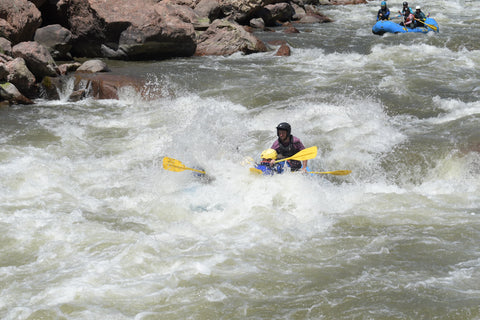
Facing Inner Fears.
If you think you are capable of doing something within your limits and don’t because you're too afraid, that’s wrong. Not saying you should do things outside of your limits or even necessarily push your limits. I’m saying if you think you can do something, you should face your fears and at least try. The worst case scenario that you play in your head is 10 times worse than what is probably going to happen in reality. It can be tough to commit when afraid, but extremely satisfying when you succeed. Amelia Earhart once said “The fears are paper tigers.” and she’s totally right in most cases. Fear is a necessary part of life that keeps you safe. But when they can be overcome, you will grow tremendously.
A Decision Best Left Up to YOU!
At the end of the day how big you want to go is up to YOU! Not your boss, your friends, or the pressure from what society thinks you should do. We don’t have much control of the external world but you should have control of your own decisions. Don’t put yourself in a situation that is super dangerous when you are not ready for it, but also find a way to get outside your comfort zone and grow. Find a good balance to this equation and you will live a really rewarding life! Until next time… SYOTR
By: Jason Caligaris Jr.
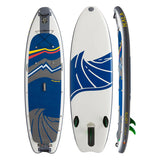
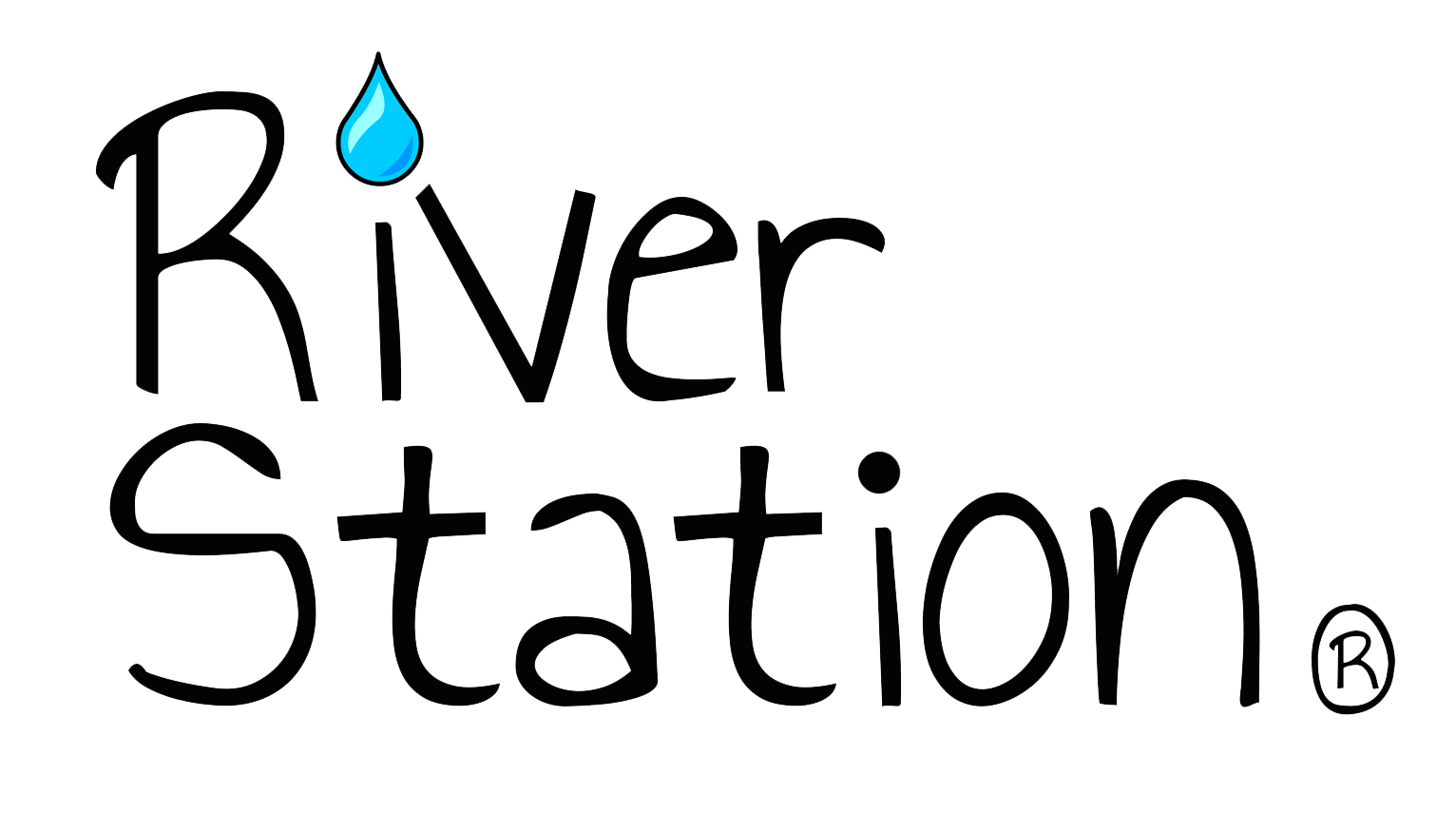
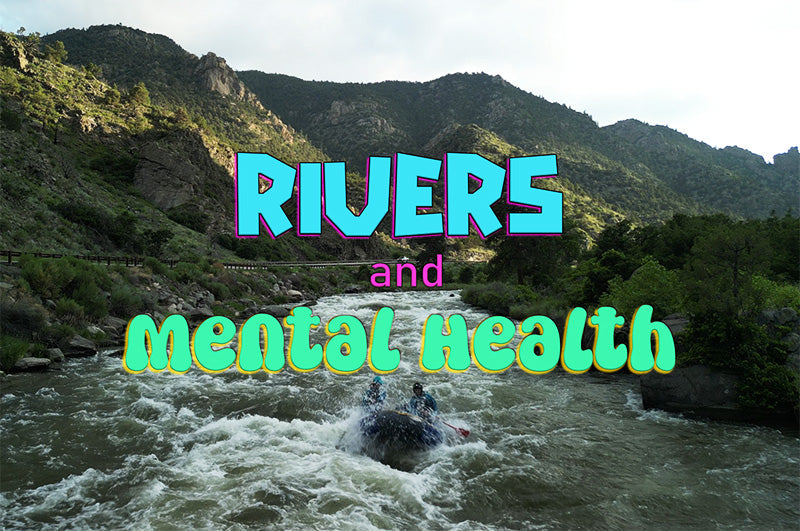
Share:
Why River Station Gear?
New Outdoor Gear Store Coming to Cañon City, Colorado
3 comments
Thank You for the enlightening article. I have been on the river for 30 years, and at nearly 67 years old you just put into words exactly what my soul feels at the river. In fact,I think I’ll head down for a while today.
Thanks for the comment Fox. Glad someone out there enjoyed this one! I will definitely write more like this in the future.
Hey, I really enjoyed this article! I think it provides impactful insight to things (as raft guides and boaters) can struggle with. I would love to see more like this. Might I suggest some tips or guidance about how to recover from a bad swim? A fellow boater I know took an extremely bad swim on a class V river at high water and they have struggled to have a similar confidence as they did before swimming. I would love to hear about how you can progress to work over/through that sort of fear that comes and lingers. Great article, I really appreciate it!